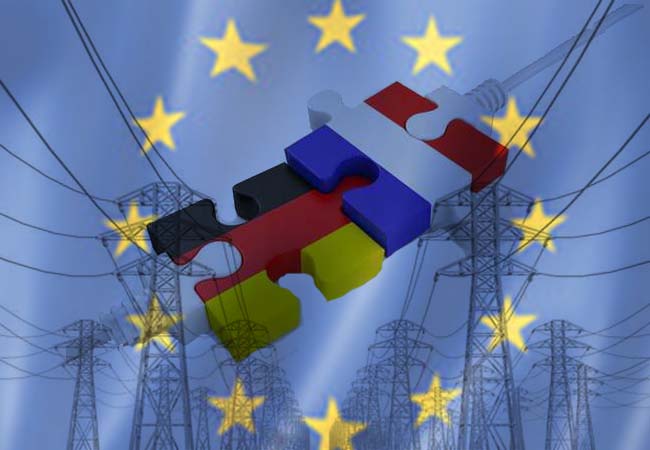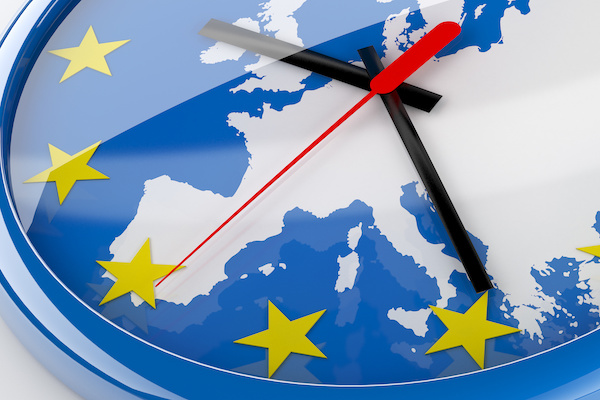14 November 2014
Germany, time to choose!


So far, the electricity supply/demand balance has always been ensured in Europe. But from this year, for some European countries, things might even become more complicated in case of a harsh winter… Many others should also face to the same situation starting from winter 2016, when the first effects of European directives forcing the closure of selected thermal power plants will be felt. In sum, in a European electricity system increasingly interconnected, the security of supply should be threatened in the medium term, at the European level. Hence, the debate currently ongoing in Germany on the means to improve the functioning and design of the energy market…
Reflecting on the evolution of the electricity market seems delicate for Germany, and the consultation process launched by Chancellor Angela Merkel, taking place until the end of 2015, shows at the same time how important the issue is, and how far the solutions are from being found. The Green Paper on the reform of the German electricity market published last week, triggered as always a very political debate, covering at the same time industrial, economical, societal and climatic stakes. As passion takes over reason and everyone is sharpening up its knife, for or against the evolution of the “energy-only” market, the “trench warfare” is getting closer.
What is the problem?
It must be said that across Europe, security of electricity supply is becoming more and more uncertain in the medium term. Even in France! If RTE doesn’t directly fear the next winter, it reported in its annual forecast, a lack of capacity of 1 GW for winter 2015-2016, and of nearly 2 GW for 2016-2017. Not sure that the French consumers, accustomed to a high-quality electricity supply, will appreciate to suffer cuts-off during winter. Beyond that, a country that must preserve its industrial competitiveness from the rest of the world, shouldn’t accept this sword of Damocles over its head. The reasons of this unsecure European context are well known but not addressed yet, as Cap Gemini and Natixis recalled in their Observatory of European energy markets updated last week: overcapacity of intermittent production uncorrelated with the evolution of demand and networks developments (as in Germany, for example); the closure of 50 GW of gas power plants by 2016 in Europe; the closure of nuclear power plants in Belgium, which will result in supply worries in the next few months; -70 GW of coal plants capacity by 2020-23, taking into account the new European emissions standards… and according to IEA’s forecasting of an increasing electricity consumption in 2020, an average of $ 2.5 trillion of investments (IEA quote) will have to be financed by 2035.
The German case
It makes you dizzy! In fact, any industrial of the electricity sector or public authority knows that the current state of the European electricity market doesn’t allow a proper remuneration of market players, harming severely their investment capacities in network and production infrastructure. German utilities are particularly affected. Low wholesale prices have already cut down the market capitalization of main operators, between 30% and 40% (excluding the effects of the crisis) in 2013, and things are not getting any better.
After a strong (and too fast?) step forward into its energy transition, Germany started to realize the magnitude of the challenge. The country hence started a reflection on the available options to reforms the market design with among them, the introduction of a decentralized capacity market. BMWi’s (Federal Ministry of Economy and Energy) “Green Paper” published last week, underlines the pros and cons of these mechanisms. But, while they are designed to complement the “energy only” market, the Green Paper seems to have already taken position against them.
Address the three fundamentals
Among the arguments put forward by BMWi, one states that capacity mechanisms should not be necessary to ensure security of supply. The evolution of electricity prices and most particularly the occurrence of frequent price spikes would be enough to overcome the situation.
However it would be quite difficult today to reach the public acceptance for such price spikes on a large scale, even in Germany where consumers are already accustomed to very high energy prices. Above that, no worthy business-plan can rely on such fluctuating signals to trigger investment. This is why France designed its capacity obligation mechanism, in the strict perspective to ensure the requirements on security of supply, fixed by the government.
The Green Paper also states that capacity mechanisms would be expensive for final consumers. Again, a wobbly argument. The French mechanism, for instance, is designed in a way that the cost for final customers would strictly correspond to the cost of investments needed to ensure security of supply. If there isn’t any threat to the security of supply, the price of capacity, such as the cost for the consumer, will be zero. It is then not verified that capacity mechanisms are costly compared to other forms of market organization.
Another argument of the Green Paper states that capacity mechanisms would advantage production facilities harming the integration of demand side solutions and the development of RES capacities. Again, this reveals a clear misunderstanding of the mechanism. In France, the capacity obligation integrates without any discrimination both power generation technologies and demand side solutions, taking only into account their contribution to security of supply.
In fact, considering the crucial challenges to be faced in the next years, it seems vain to oppose solutions between them. We should objectively assess the ability of different components of the market (“energy-only” market, capacity mechanism, strategic reserve…) to address the three fundamental needs of our society: security of energy supply, competitive and affordable energy prices, and an effective contribution to the fight against climate change. This is exactly the pragmatic approach chosen by French and German utilities, through the joint works carried out since the beginning of the UFE/ BDEW / DENA partnership.
Find out more
02 June 2020
“Long live Europe”: it’s time for Europe!
25 February 2020
Brexit: love last 47 years


About us
The Union of the French Electricity Industry is the trade association of the French electricity sector. We bring together companies from the whole value chain of the electricity industry.
Find out more









